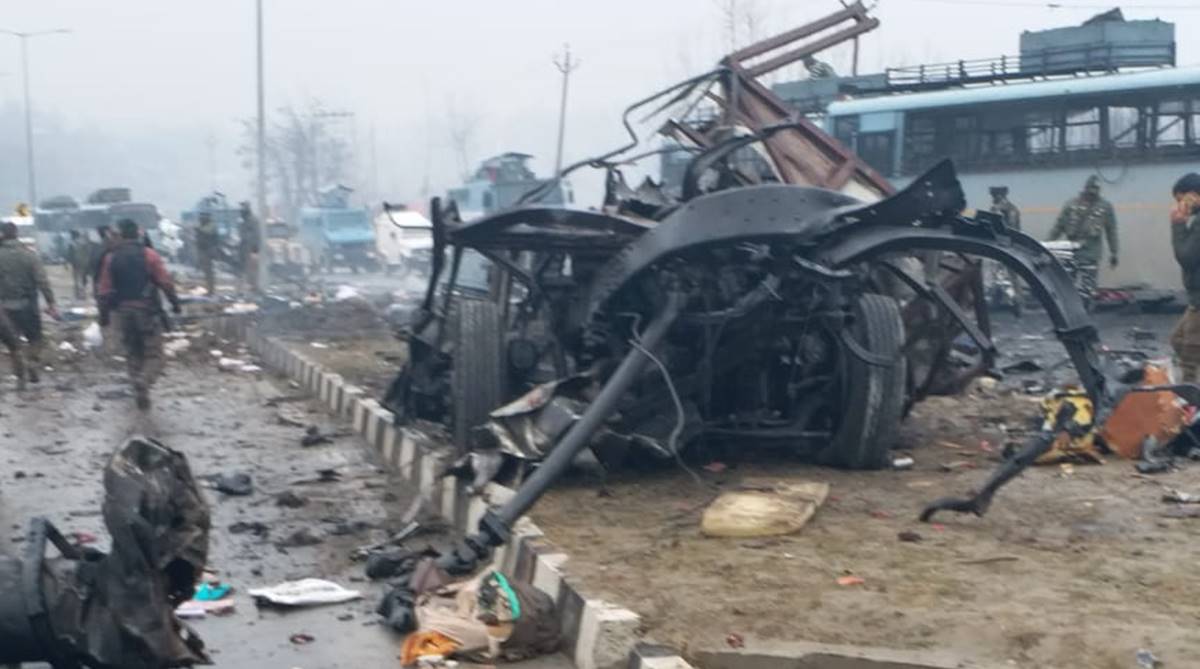The attack on a CRPF convoy in Pulwama pushed relations between India and Pakistan to the wall. It also exposed flaws in the existing security apparatus. There will be a spurt in international engagements by India as well as changes in the security apparatus and procedures, as lessons from the incident are drawn.
Attacks on security forces have been continuing as part of the militancy in Kashmir. However, they have been small and with limited success. An attack with success of such magnitude has not been launched earlier, though it was not unexpected. With militancy continuing, it was only a matter of time before one attempt would produce results to make government and security forces take note.
Advertisement
Questions were raised whether the army’s Road Opening Party was lax. Such comments ought not to be offered without ascertaining facts. The fact is this stretch of road does not have any ROP by army. Other security agencies are responsible.
The government has already passed directions to restrict movement of civilian vehicles with security convoys. It may add to traffic congestion but is essential to ensure security as moving troops are most vulnerable. Similarly, investigations are in progress on determining the chain through which militants obtained such a large quantity of explosives.
The assembling of explosives is neither simple nor done by amateurs. It needs training and expertise. Thus, arises the question of whether it was assembled by a local militant or by a trained Pakistan national. If it is the work of locals, then it adds a new dimension to the militancy.
The incident was condemned by all nations across the globe, except Pakistan. Pakistan issued a rushed clarification on their non-involvement. This was changed thrice in a space of a few hours. This is acceptance of guilt. The announcement of responsibility by the JeM indicates the direct involvement of the Pakistan army in the incident. Pakistan’s role in destabilising the region is evident when its three neighbours, India, Iran and Afghanistan, accuse it of the same crime. The Cabinet Committee on Security (CCS) met under the chairmanship of the Prime Minister. Its first action was to remove Pakistan from the status of Most Favoured Nation (MFN). Though symbolic, it would convey a message. India never considered withdrawal of MFN even when the Uri attack occurred. Though trade between the two nations is low, with the announcement, the message is clear. Similarly, the dossier being presented to the Financial Action Task Force would ensure Pakistan remains on the Grey List.
Diplomatic and financial support to secessionist and anti-national movements in Pakistan should be a priority for the government in a tit for tat move. These are powerful and can create major problems for cash strapped Pakistan.
A warning to international players participating in the Pakistan super league to quit or face being banned from the IPL could have an immediate impact on cricket-crazy Pakistan. After all, IPL pays far more. It would convey Indian power and damage the reputation of Pakistan, especially as its PM is a former cricketer. A similar announcement that no medical visas would now be issued would impact the local population. Kartarpur corridor should now be pushed back, while construction of dams as per the Indus water treaty speeded up.
There have been calls for international pressure on Pakistan. However, this needs a realistic look. The US needs Pak for continuing talks with the Taliban and China needs to ensure protection of its investments. China hence refused to reconsider its approach to Masood Azar. Direct pressure on Pakistan may be less effective. Near simultaneous to the Pulwama attack was an attack on the Iranian border guards. Both were suicide attacks. Iran has also threatened military action. Pakistan could be targeted by both nations simultaneously.
The nation would seek a military response. For the common Indian, unless there are deaths in Pakistan in a retaliatory strike, revenge is incomplete. Mature nations do not respond in anger. There are occasions when non-military actions are taken first, creating a path for military action. This implies obtaining concurrence for strong military action which would not be condemned internationally.
Military strikes are never launched in a hurry. Nations await their moment, confirm their intelligence, locate and monitor their objective and then strike. Strikes must have a major chance of success. Further, it need not be a ground attack, there are other means available. The surgical strikes were an action which Pakistan denied and even hid from its own people. Hence, the next one should be more visible. If this leads to a riposte, then so be it.
Kashmiri terrorists would hope security forces act with vengeance and anger against the local population, pushing more into their fold. This would need to be curbed as many are neutral and have been sharing inputs with security forces, enabling success. However, there would be increased checks and enhanced security measures.
Targeting Kashmiri students in different parts of the country is stereotyping. Kashmiris studying outside the state are those who should be exploited to send a message of better opportunities within India than Pakistan to the valley, countering Pakistani propaganda. Targeting them would play into the hands of Pakistan. There would be a spurt of activities undertaken by different branches of the government almost simultaneously, either to contain and isolate Pakistan or to eliminate the perpetrators of this act. Investigation by specialists would lead to the source of explosives. With time the entire picture behind the attack would be clear, lessons learnt and implemented. However, convoys would continue to move. India cannot stop troop movement in its own territory.
Most important is to set up measures to prevent their reoccurrence. This would involve all agencies operating in the state, security, government and intelligence, working in close coordination.
(The writer is a retired Major-General of the Indian Army)











